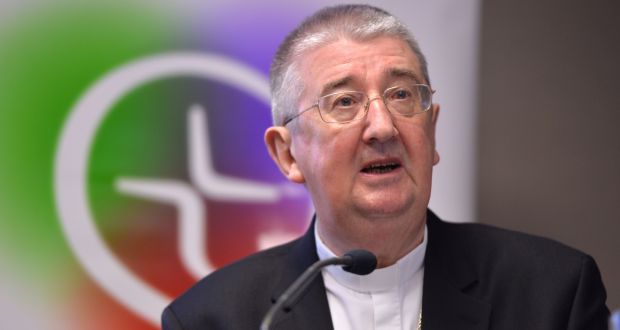Archbishop of Dublin Diarmuid Martin has warned that true reform of the Church in Ireland will not come about by tinkering with structures, but only through a radical spiritual realignment.
Speaking at the weekend, the archbishop also said that change can be hindered by the fact that many people who talk of reform “are still fundamentally clerical in their vision of the Church”.
However, the archbishop has come in for sharp criticism from a group representing parents in Catholic schools after Dr Martin claimed in the same speech that there is a “stubborn reluctance within the Church” to parishes handing over local schools to other patrons to provide for the wishes of non-Catholic parents.
According to Patrick Treacy, spokesman for ‘Faith in Our Schools’, “people at the frontline of protecting the Christian ethos of Catholic schools legitimately expect support and encouragement from the leaders of the Catholic Church in Ireland”.
Mr Treacy warned of “a systematic removal of faith and religious education” from Irish schools under the current Government. It comes after Minister for Education Richard Bruton announced that he plans to single out Catholic schools to prevent them from giving preference to Catholic children when the school is over-subscribed.
Mr Treacy said the Department of Education had failed to conduct independent research into what schools are oversubscribed and the true extent of that oversubscription. A survey by this newspaper last year found that fewer than 2% of schools nationally are over-subscribed meaning the issue is being hugely exaggerated.
“Proper, reliable and independent research is simply essential as otherwise national changes will be made to school admission policies based on the political and media influence of secularist lobby groups,” Mr Treacy said.
On the issue of Church reform, Archbishop Martin said the Church “needs to do much more to incorporate a broad spectrum of activity of laymen and women in the life of the Church and to be witnesses to their faith in the emerging Irish culture”. He warned that “many of the reform movements are still clerically-led and still fundamentally clerical in their vision of the Church”.
“They represent an older generation,” the archbishop said.
“It is not just about reforming structures. It is about the ability to preach and witness to the message of Jesus. Reform in the Church is not in the first place about the redistribution of power, but about the redefinition of power in terms of the way in which Jesus revealed who God is,” Archbishop Martin said.
Jesuit theologian Fr Gerry O’Hanlon described the archbishop’s address – given in Würzburg, Germany – as “a perceptive commentary on the situation in Ireland”. Fr O’Hanlon said Pope Francis’ vision of a collegial or synodal Church seems key to the way forward in Ireland as much as the world at large.
“I think it will be interesting when the Pope comes to Ireland next year to see the extent to which our own Church has taken up the invitation the Pope has extended to the Church worldwide,” he said
Fr Vincent Twomey, emeritus professor at Maynooth, said the lecture, as a sociological description of the state of the Church in Ireland, was “very convincing and impressive in many ways”.
The main problem, he stressed, is that of the loss of Faith – “why is that?” Key questions remain to be answered, he said. “The archbishop talks about conformist Ireland – why was Ireland so conformist? What is it in Irish Catholic culture that made us so?”


 Greg Daly
Greg Daly Archbishop of Dublin Diarmuid Martin
Archbishop of Dublin Diarmuid Martin